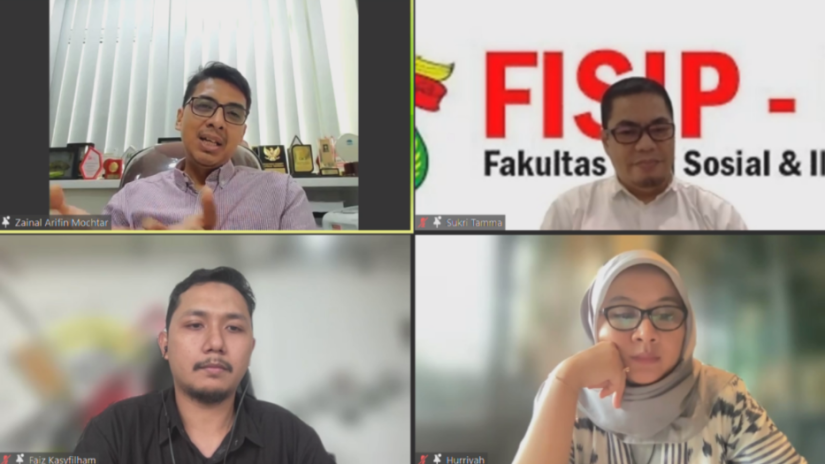
Yogyakarta, October 19th 2023─The Constitutional Court’s ruling on the judicial review of Article 169 letter q of Law 7 on Elections regarding the age limit of presidential and vice presidential candidates has raised the issue of dynastic politics to the degradation of democracy. Responding to this event, Election Corner UGM held a discussion entitled “MKDK: Where is Our Democracy Going?” on Thursday (19/10) through Zoom Meeting. Zainal Arifin Mochtar, Sukri Tamma, and Huriyyah attended as speakers.
Legal experts have criticized the decision of the Constitutional Court (MK) which relaxed the age requirement for presidential and vice presidential candidates to be at least 40 years old or experienced as regional heads. This decision is considered to pass Gibran Rakabuming, Joko Widodo’s eldest son, to become a vice presidential candidate. As a result of this decision, the Constitutional Court is considered to have deviated from its role as a bastion of the constitution.
“Political actors have engineered political games by using the law as a tool for politicians’ interests. Whereas the Constitutional Court should be the last frontier of democracy,” said Hurriyah.
Meanwhile, Zainal also considers that there is a violation of the principle that the judge’s decision does not allow a mystical atmosphere or have an interest. This refers to the Chief Justice of the Constitutional Court Anwar Usman as Gibran Rakabuming’s uncle who participated in deciding the case and granting the lawsuit.
“The implication becomes dangerous when the Constitutional Court is transformed into people’s interests. MK was made to subdue politics using the law,” explained Zainal.
Meanwhile, according to Sukri, another implication is a long domino effect starting from the uncertainty of democracy due to the fragile fortress and the absence of a foundation to maintain democracy. Intervened legal strictness can cause an imbalance between legal and political positions.
“Democracy is a space with many interests, if it is not strictly regulated by law then there will be no better life (the law does not work),” said Sukri.
According to Hurriyah, the phenomenon of democratic regression is not only happening in Indonesia but has become a global trend, where executive leaders use their popularity to impose laws or policies in the destruction of democracy and disrupt checks and balances. Improving the quality of law so as not to plunge into democratic degradation requires strengthening constitutionalism standards and civil society involvement.
“The work of civil society (needs) to be strengthened to open better discussion and liberative spaces,” said Zainal.
This discussion agenda was organized in line with the SGDs goal point 16 on Peace, Justice, and Resilient Institutions.
